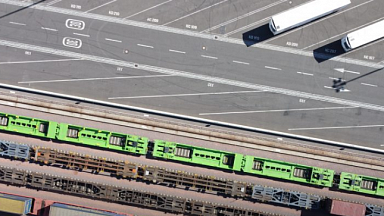The fresh sanctions, which spare for now Belarusian banks, come after Minsk allowed Russian troops to move into Ukraine from its territory, as well as changed its constitution to allow permanent deployment of Russian forces and nuclear weapons on its soil.
The measures include fresh economic sanctions and new listings of 22 high-ranking members of the Belarusian military involved in the aggression against Ukraine.
The economic sanctions hit both Belarus’ exports to the EU, and EU exports of machinery to Belarus.
TRADE CURBS
The import ban significantly expands previous sanctions, and will now cover nearly 70% of Belarus export to the EU, which accounted for 5.9 billion euros last year, an EU official said.
Among the sectors hit are wood, timber, steel and iron, which were not covered by previous sanctions, and cumulatively represent nearly 40% of all Belarusian exports to the EU. Other sectors affected by the EU import ban are cement, rubber and fuels.
The new sanctions also close loopholes and end carve-outs on existing sanctions on Belarus export of potash, a fertilizer made of potassium and a key trading product. So far sanctions had banned only 20% of that export, whereas the new measures will completely ban its trade, EU officials said.
The measures will include contracts signed before their adoption, and not just new contracts as in previous rounds of sanctions. Companies will have three months to close open contracts.
Risks that banned products may be exported via Russia or other third countries would be addressed by customs authorities, EU officials said.
Under the new sanctions, the EU will also stop exporting to Belarus a long list of machinery that could be used for military purposes, in addition to products already banned. Among the new sanctioned products are advanced technologies, including computers, electronics, telecoms, sensors and lasers.
Unlike Russian lenders, Belarusian banks have not been excluded yet from the SWIFT international payments system, but one EU official said that that «will come.»
The fresh measures come on top of those already imposed by the EU after President Alexander Lukashenko crushed protests following elections in August 2020.



